PEST Analyses
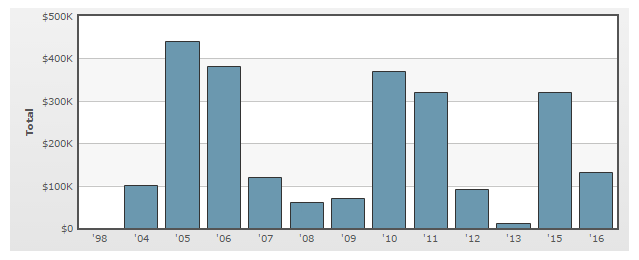
PESTEL is a strategic analytical tool and the acronym stands for political, economic, social, technological, environmental and legal factors. Gap Inc. PESTEL analysis refers to the analysis of potential impact of above external factors on the bottom line and long-term growth prospects of the business. Political Factors There is a set of political factors such as political stability in the market, relevance of bureaucracy and corrupt practices, the freedom of press, home market lobbying practices and others that can affect Gap Inc. in multiple levels. The company is engaged in lobbying its political interests. However, as it is illustrated in figure below, Gap Inc. annual lobbying budget is not fixed and it fluctuates significantly year by year to reflect specific political issues the business wants to address each year. Gap Inc. annual lobbying budget[1] Gap Inc. has also been involved in a political controversy and has been accused of causing racial controversy to get spectacular press coverage and social visibility. The company’s Twitter campaigns included an image of “two white girls in poses that look quite painful, next to a third white girl using a smaller black girl as an armrest”[2] The campaign caused a massive controversy and debate attracting thousands of retweets and likes, the story being covered by more than 214 news articles.[3] Another instance of Gap marketing campaign involved an image of a happy interracial family, causing debates on social media platforms about the issue of interracial marriage. Economic Factors Gap Inc. market share and revenues are affected by a great range of economic factors directly or indirectly. Changes in foreign exchange rate is one of the major economic factors that have direct implications on Gap’s financial performance. For example, the company’s net sales for fiscal 2015 decreased USD 638 million, or 4 percent, compared with fiscal 2014…
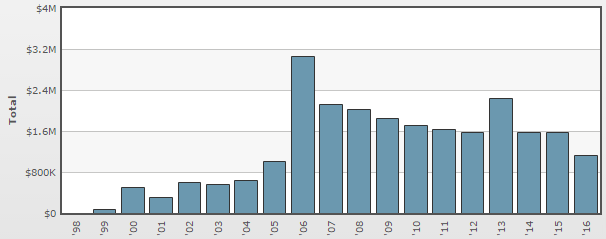
The acronym behind the strategic analytical tool PESTEL stands for political, economic, social, technological, environmental and legal factors. eBay PESTEL analysis involves an analysis of potential effect of above factors on the volume of revenues and growth prospects of the business. It has to be specified that the range of factors covered within PESTEL framework are the external factors for the business and the company has little or no impact on these factors. Political Factors eBay’s financial performance and growth prospects can be affected by a range of political factors that include political stability in the market, the levels of bureaucracy and corruptions in the country, activities of trade unions and home market lobbying groups and others. In 2015, eBay has been caught into a political controversy and the company has been accused of “collaborating with hundreds of overseas retailers to defraud the taxman of millions of pounds every day”[1]. Specifically, non-EU sellers on eBay and Amazon were not paying VAT tax in the UK or elsewhere, causing the loss of millions of pounds annually. In another political case in 2015, amid an intensifying national debate over the use of the Confederate flag, eBay along with Walmart, Amazon and Sears announced that they will stop selling the controversial flag[2]. This is due to the association of the Confederate flag with slave-holding practices in the US and willingness of the business to avoid offending customers segment who are sensitive towards the issue. As it is illustrated in figure below, eBay has a solid annual lobbying budget to pursue its political agenda to a certain extent and to contribute to the creation of a political environment that is favorable for the business. Annual Lobbying by eBay Inc.[3] Economic Factors There are many economic factors that may affect eBay revenues and growth prospects directly, as…
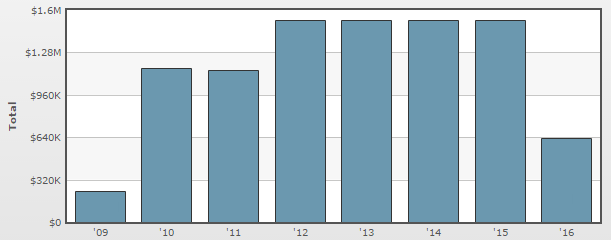
PESTEL is a strategic analytical tool that stands for political, economic, social, technological, environmental and legal factors. Hilton Hotels PESTEL analysis involves the analysis of potential effect of these factors on Hilton’s revenues and its long-term growth prospects. The following is a brief Hilton PESTEL analysis for the UK market in particular. Political Factors Political stability is a basic requirement to success regardless of the industry. In hotel industry in particular, political factors can influence the number visitors, both, tourists and business travellers’ visits to a country in direct and indirect ways. For example, an ongoing delicate political situation Northern Ireland may discourage potential visitors to the region due to safety concerns. Moreover, following acts of terrorism in London on July 7, 2005, UK was temporarily branded as a place that accommodated a set of extremist religious organizations. Risks or threats of acts of terrorism are most likely to reduce the numbers of visitors to London and UK with negative impacts on Hilton performance in this particular market. Hilton Worldwide actively engages in lobbying in order to be able to influence certain political factors upon the business to a certain extent. As it is illustrated in the figure below, the company has been spending more than USD 1.5 million during the past four years for lobbying purposes. Annual lobbying budget of Hilton Worldwide[1] Economic Factors National and international macroeconomic situation and factors and events impacting the situation are major factors affecting Hilton Hotels & Resorts business. For example, during the Olympic times in the UK in 2012 most of the hotels were occupied and booked fully for the whole period. However, the situation was completely different once the Olympic Games were over. Moreover, as a direct result of the global economic and financial crisis of 2007 – 2009, same hotel sales…

Red Bull PESTEL analysis facilitates a critical analysis of external factors affecting the energy drink manufacturer. The acronym stands for political, economic, social, technological, environmental and legal factors. Below is a brief analysis of the potential impact of each of these factors on Red Bull GmbH. Political Factors There are some political factors that affect Red Bull directly or indirectly. Specifically, a range of political factors affecting Red Bull directly include government stability or instability, levels of corruption and bureaucracy in markets, the role and freedom of press, home market lobbying initiatives and home market protectionism measures. Red Bull GmbH attempts to influence certain political factors and relevant rules and regulations via its lobbying efforts. For example, once US Food and Drug Administration (FDA) set “to investigate reports of illness, injury or death of people who took products marketed as “energy drinks” or “energy shots.”[1], “Red Bull North America has hired Podesta + Partners, the lobby firm run by power broker Heather Podesta, to “educate policymakers regarding energy beverages,” according to Senate records”.[2] Economic Factors The financial performance of Red Bull is a subject to a number of economic factors. Macroeconomic stability is one of the main economic factors affecting businesses in general and businesses operating in premium segment such as Red Bull GmbH in particular. For example, as a direct impact of the global economic crisis in 2009, Red Bull’s “net sales came in at EUR3.27bn, down 1.5% on the previous 12 months”[3]. The exchange rate between EURO and other currencies is another major factor with direct implications on Red Bull revenues. Specifically, a weak EURO throughout 2015 played a major role an increase in revenues by 15 per cent during the year, from EUR 5.110 billion to EUR 5.903 billion.[4] Moreover, additional economic factors that can affect Red Bull…

The acronym PESTEL stands for political, economic, social, technological, environmental and legal factors affecting businesses. Accordingly, British Airways PESTEL analysis involves an analysis of the impact of these external factors on the airline. Political Factors British Airways is a major international airline that flies to more than 400 destinations worldwide. Political stability and the perception of safety by the population is an important political factor that has a tremendous impact on British Airways. A stark illustration of this claim may refer to terrorist attacks at Brussels airport in March 2016, which caused the decline of IAG share price, British Airways’ parent company by 1.5 per cent[1]. Moreover, recently the airline found itself to be engaged in a political debate for demanding a third runway at Heathrow airport from the UK government. Specifically, “the boss of British Airways has warned he could seek to expand the airline overseas if the Government “twiddles its thumbs” over a third runway at Heathrow”[2] Generally, apart from political stability, a wide range of political factors affecting British Airways include the level of bureaucracy, the extent of corruption, home market lobbying activities, activities of trade unions and others. Activities of trade unions in particular have proved to be a major factor affecting the airline to a considerable extent during the past years. Economic Factors Certain economic factors such as the inflation rate, currency exchange rates and the overall economic climate in the UK has direct and important implications on British Airways performance. The cost of fuel is another significant economic factor for British Airways, since the Group used approximately 5.7 million tonnes of jet fuel in 2015 only.[3] For example, in 2015, British Airways expenses on fuel decreased by £484 million, or 13.8 per cent compared to the previous year despite the increasing scope of operations[4].…

PESTEL is a strategic analytical tool used to evaluate external environment for the business. Specifically, Tesco PESTEL analysis involves an evaluation of political, economic, social, technological, environmental and legal factors affecting the retail chain. Political Factors A range of political factors can affect Tesco in direct and indirect ways. The list of political factors that may affect Tesco include but not limited to political stability in the UK and abroad, bureaucracy and the extent of corruption in Tesco’s home market in international markets. Moreover, activities of trade unions and home market lobbying initiatives in international markets are important political factors that affect the retail chain. Tesco’s new Chairman, John Allan has proved himself as an outspoken business leader to express his views about impacts of political factors on the business. For example he has stated that “the prospect of an EU referendum is causing uncertainty for investors, and this represents a “heavy pebble” placed in the scales of the British economy”[1]. Certain political factors can potentially have negative implications on Tesco’s bottom line. For example, in 2014 a group of local councils in the UK formally asked the government to for new powers to tax large supermarkets, an initiative that became known as ‘Tesco Tax’.[2] Although, this specific initiative was refused by the UK government to avoid price increases, similar political initiatives may succeed in the future with negative implications for Tesco. Economic Factors Various macroeconomic factors affect Tesco to a great extent. The cost of labor is one of the major economic factors greatly impacting the revenues of the supermarket chain. The company’s annual wage bill accounts to GBP 4.5 billion. Accordingly, increase of 1 per cent in the cost of labor costs the company about GBP 45 million. An increase of the national minimum wage to GBP 7.20…
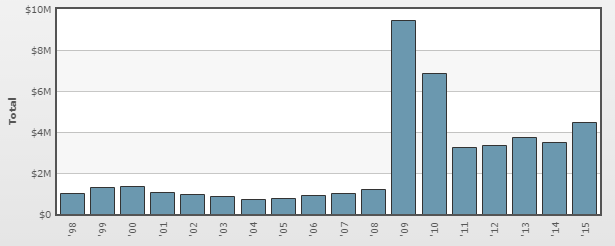
Changes in external environment might affect organizational performance in direct and indirect manners; therefore they need to be taken into account in strategic planning. PepsiCo PESTEL analysis can be highlighted as the most appropriate strategic analytical tool for specifying and categorizing external factors impacting businesses. Political Factors Government stability in the USA and other countries selling PepsiCo products is a major political factor for the company. PepsiCo is also impacted by bureaucracy, trade unions, corruption, home market lobbying, the freedom of press and a range of other political factors either directly or indirectly. PepsiCo actively attempts to influence political factors to benefit its business via its lobbying initiatives. As it is illustrated in figure below, the amount of money PepsiCo spends annually for lobbying has increased more than six-fold during the last ten years to reach USD 4.47 million in 2015. PepsiCo uses a set of lobbying firms such as Russell Group, FTI Government Affairs, Duberstein Group and Covington and Burling[1] to secure its interests via political channels. PepsiCo’s annual lobbying budget[2] Economic Factors Economic factors impacting PepsiCo include rise of inflation and unemployment in the USA. Rising prices of raw materials have to be mentioned as another significant economic factor. Additionally, changes in income levels of current and perspective PepsiCo consumers can be highlighted as a substantial economic factor that impacts the business. Strong USD against other major world currencies is one of the most significant economic factors directly impacting the amount of profit reported by PepsiCo. For example, in quarter 1, 2016, PepsiCo’s total sales declined by 3 per cent to USD 11.86 billion, the sixth straight quarter of decline partially caused by a strong dollar.[3]… PepsiCo Inc. Report contains the full discussion of PepsiCo PESTEL analysis. The report also illustrates the application of the major analytical strategic frameworks…
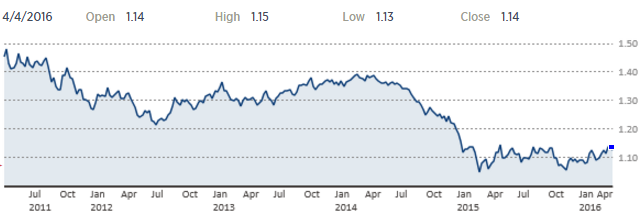
PESTEL is a strategic analytical tool and the acronym stands for political, economic, social, technological, environmental and legal factors. BMW PESTEL analysis involves the analysis of potential impact of these factors on the bottom line and long-term growth prospects Political Factors There is a wide range of political factors that affect BMW Group in various ways. For example, enforcement of new laws related to CO2 emission and change in EU legislation related to end-of-life vehicle (ELV) recycling are major political factors that affect BMW manufacturing processes. Level of political stability in emerging markets such as Russia, China, and Brazil can be highlighted as additional political factors impacting BMW in a way that political instability in these countries can have negative implications on local consumer spending patterns. Additionally, in case of political instability BMW investments in respective countries may be subjected to risks. There are also instances where BMW has attempted to influence external political factors to create a favourable political climate for its business operations. The opposition of the company to European commission proposals for a tougher limit on carbon emissions in 2012 can be mentioned to justify this claim. Specifically, it was noted that BMW was lobbying to water down European plans to improve the fuel efficiency of cars at the same time as trumpeting its green credentials as the official car sponsor of the Olympic Games, according to internal documents seen by the Guardian[1]. Economic Factors Impacts of a wide range of economic factors on BMW performance are evident and significant. Namely, vast GDP fluctuations in EU countries during the last few years with direct implications on consumer spending in EU countries is a substantial economic factor that affects BMW Group performance to a considerable extent. Currency exchange rate can be named as another important economic factor that has…
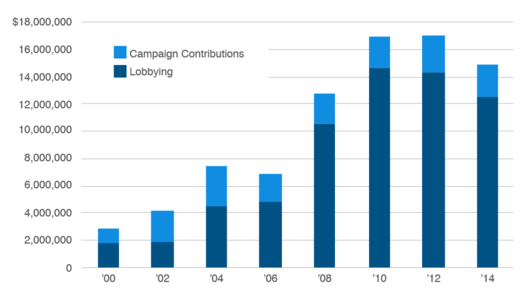
PESTEL is a strategic analytical tool and the acronym stands for political, economic, social, technological, environmental and legal factors. Walmart PESTEL analysis involves the analysis of potential impact of these factors on the bottom line and long-term growth prospects. Political Factors Because of its massive size and significance for the US economy, Walmart has been observed to interfere with politics a number of times. The primary reasons for Walmart’s political interferences via lobbying and other means have been an attempt to gain positive political impact on the business. In 2013 Walmart has been caught convincing employees to make political contributions to republicans to support pro-business conservatives like Cruz and Boehner[1]. Walmart has been ranked among the top 100 political donors overall for the period since 1989[2]. As it is illustrated in Figure 5 below, Walmart political spending has vastly increased during the past one and half decade and these funds have been used to influence corporate tax and labour legislations to a certain extent.[3] Changes in Walmart’s political spending[4] Apart from campaign contributions and lobbying activities, Walmart has attempted to interfere directly in certain political debates a number of times. In one notable case, Walmart voiced its opposition to religious freedom law in its home state of Arkansas in 2015. Arguing that religious freedom laws would open the door to discrimination against gay and lesbian customers, Walmart emerged victorious and Republican Gov. Asa Hutchinson refused to sign the legislation.[5] Additionally, Walmart is impacted by a wide range of political factors such as political stability in places where the company operates, market lobbying protectionism policies in international markets, the freedom of press, extent of corruption and others. Economic Factors Walmart revenues and profits are impacted by a range of external economic factors either, directly or indirectly. For example, currency exchange rate…

PESTEL is a strategic analytical tool and the acronym stands for political, economic, social, technological, environmental and legal factors. Toyota PESTEL analysis involves the analysis of potential impact of these factors on the bottom line and long-term growth prospects. You can learn the theory of PESTEL analysis here. Political Factors The global automobile industry is subject to a range of political factors such as political stability, the impact of home lobbying groups, major geopolitical tendencies and others. Toyota Motor Corporation in particular has experienced the direct impact of political factors in many instances. A stark example of an impact of political factor on Toyota performance relates to poor relationships between Japan and China. Specifically, “anything related to Japan — and the products it peddles – is off-the-charts out of favour. This is because the two countries are in dispute over the possession of a set of small, uninhabited, privately owned islands in the East China Sea”[1]. This situation has a potentially negative impact on the volume of Toyota revenues in China. In another instance, Toyota found itself involved in a political battle in Australia in 2014. The controversy is related to ‘royal commission’ policies introduced by the Prime Minister Tony Abbot which was criticized to target big businesses such as Toyota manufacturing in Australia. The incident has resulted in an announcement by Toyota that it will cease the manufacturing in Australia in 2017.[2] Economic Factors There is a set of economic factors such as the rate of inflation, currency exchange rate, macro-economic climate in the country and in the industry, cost of labor and tax rates that have direct or indirect implications on Toyota revenues. Particularly, currency exchange rate fluctuations is a major macro-economic factor that directly affects Toyota reported revenues. For example, company’s operating income for the fiscal…
